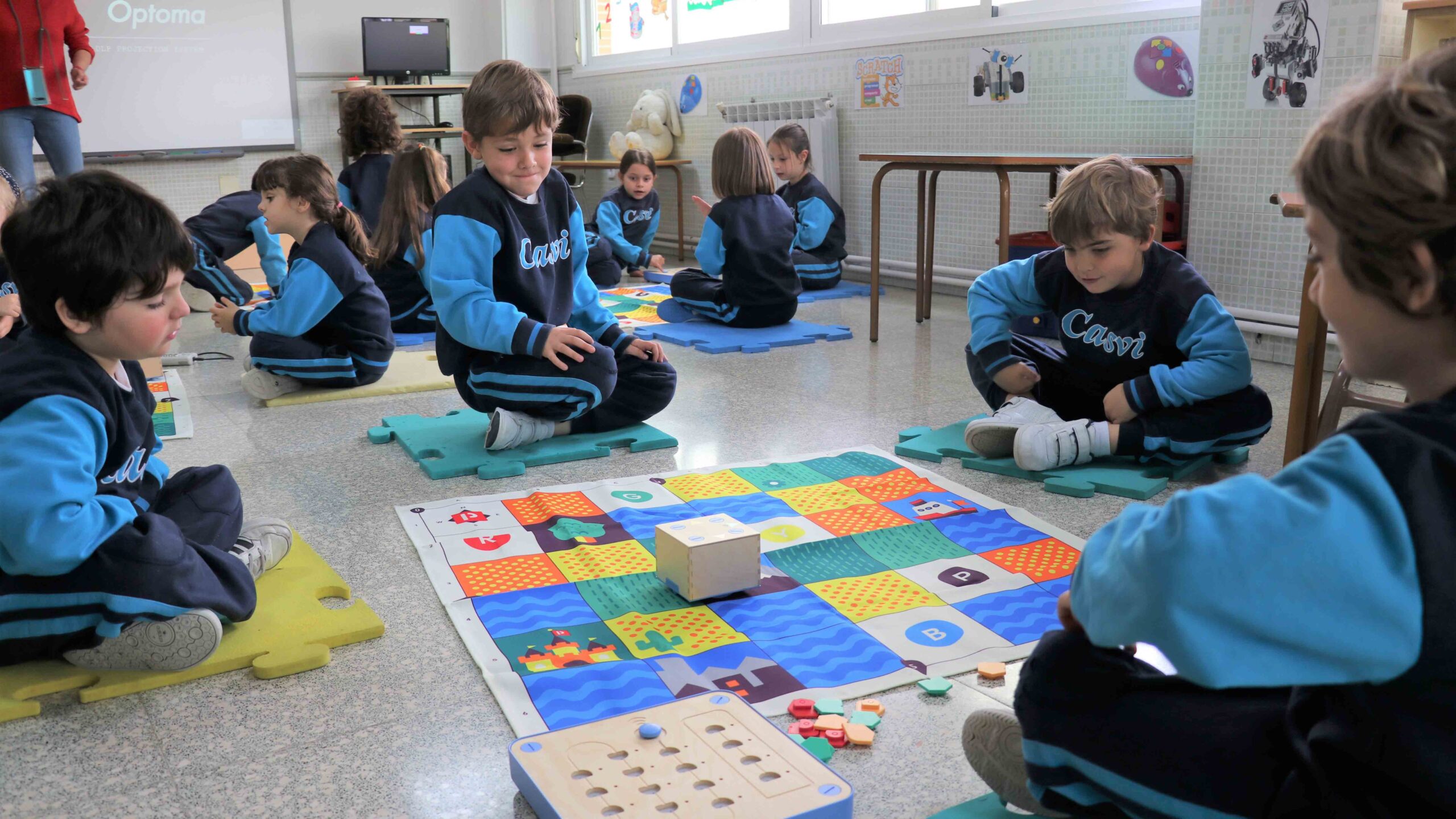In today’s society, characterised by the omnipresence of technology and the rapid evolution of digital tools, there is an urgent need to prepare future generations to face the challenges and take advantage of the opportunities offered by the digital world. In this context, developing digital talent in our children becomes a crucial priority to ensure their future success and well-being.
IMPORTANCE OF DIGITAL TALENT IN THE MODERN ERA
Digital talent refers not only to the ability to use technological devices and applications, but also to the ability to adapt, innovate and thrive in a digitally transformed environment. In the modern era, where technology permeates every aspect of our lives, from education to employment and leisure, possessing solid digital skills has become indispensable. Digital talent not only opens doors to job and economic opportunities, but also boosts creativity, critical thinking and problem solving, essential skills for success in the 21st century.
PROBLEMS ARISING FROM THE LACK OF DIGITAL TALENT DEVELOPMENT IN CHILDREN
1. DIGITAL DIVIDE: UNEQUAL ACCESS TO TECHNOLOGY
The digital divide is a reality that affects millions of children around the world, creating significant disparities in access to and effective use of new technologies. Those who lack adequate access to technological devices and internet connection are excluded from educational and development opportunities, perpetuating social inequalities and limiting their future prospects. This lack of equitable access to new technologies creates a digital divide that widens the divide between those who can take full advantage of digital opportunities and those who do not.
2. LOSS OF FUTURE OPPORTUNITIES
Failure to nurture digital talent in children leads to a significant loss of future opportunities. In an increasingly digitalised world, digital skills are indispensable for accessing well-paid jobs and participating fully in society. Children who do not develop sufficient digital skills face additional barriers in the labour market and risk being left behind in a world dominated by new technologies.
3. IMPACT ON EDUCATION AND EMPLOYMENT
The failure to nurture digital talent also has a negative impact on children’s education and employment. In education, lack of access to technology and digital resources limits learning opportunities and can contribute to lower academic achievement. Moreover, children who lack digital skills find it difficult to access well-paid and fulfilling jobs in the future, perpetuating the cycle of inequality and marginalisation.
4. MENTAL AND EMOTIONAL HEALTH RISKS
The failure to nurture digital talent also has a negative impact on children’s education and employment. In education, lack of access to technology and digital resources limits learning opportunities and can contribute to lower academic achievement. Moreover, children who lack digital skills find it difficult to access well-paid and fulfilling jobs in the future, perpetuating the cycle of inequality and marginalisation.
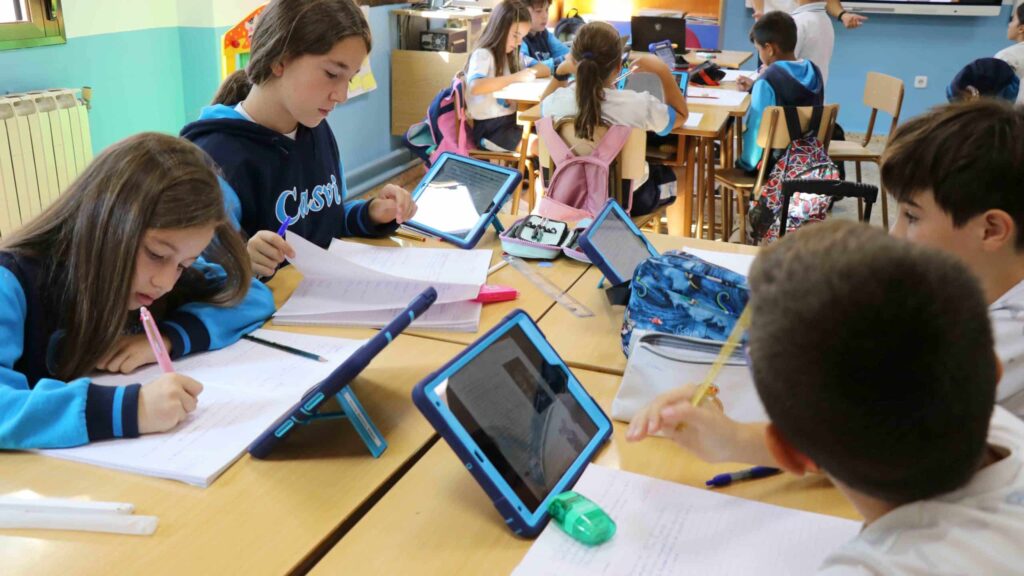
AWARENESS OF THE SERIOUSNESS OF THE PROBLEM
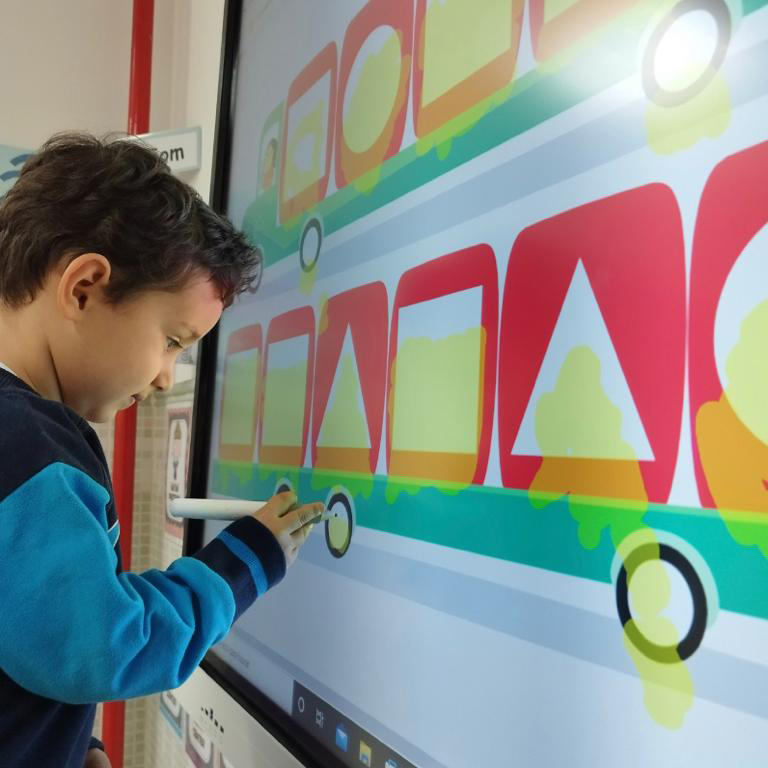
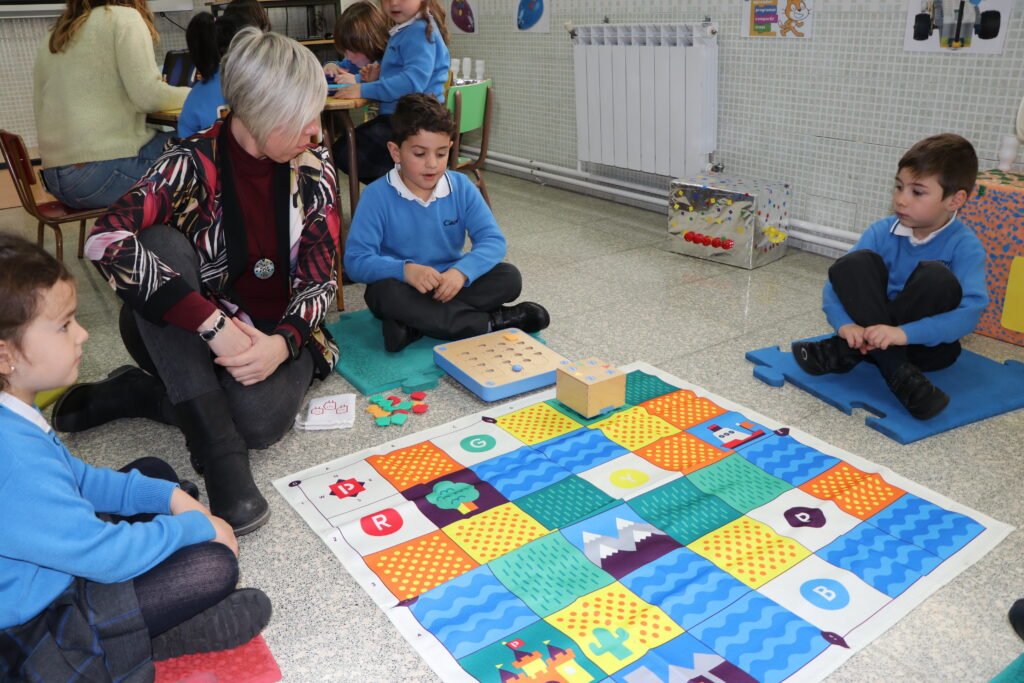
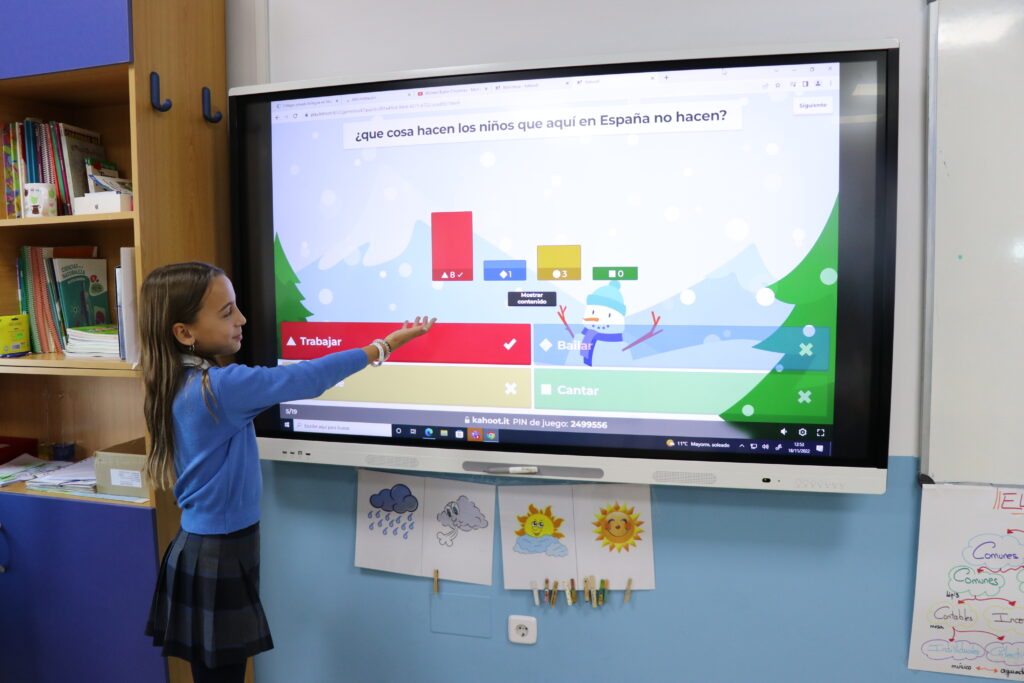
ALARMING STATISTICS ON THE UNDERDEVELOPMENT OF DIGITAL TALENT IN YOUTH
Current statistics reveal a worrying situation regarding the development of digital talent among young people. According to recent studies, an alarming percentage of children and adolescents lack basic digital skills to function in modern society.
For example, data from international organisations indicate that more than 50% of young people do not have sufficient digital skills to access well-paid jobs in technology sectors. These figures highlight the urgent need to address the problem and take action to foster digital talent in young people.
EXPERT OPINIONS ON PEDAGOGY AND TECHNOLOGY
Education and technology experts have expressed concern about the underdevelopment of digital talent among youth and stressed the importance of addressing this problem in a comprehensive and urgent manner. According to these experts, the mastery of digital skills is fundamental for academic, occupational and social success in the digital age.
Furthermore, they underline the need to update educational methods and adapt them to the demands of the digital world, integrating new technologies effectively into the teaching-learning process. The views of these experts reinforce the importance of taking concrete steps to promote digital talent among young people.
RESEARCH AND STUDIES ON THE EFFECTS OF DIGITAL SKILLS GAP
Numerous research and studies have analysed the effects of a lack of digital skills on young people and have identified a number of negative consequences for their development and well-being. These studies have found correlations between lack of digital skills and problems such as poor academic performance, difficulty in accessing quality jobs, and a widening digital and socio-economic divide. Furthermore, there is evidence that young people with limited digital skills are at a disadvantage in an increasingly digitised world, affecting their ability to actively participate in society and take advantage of opportunities for personal and professional growth and development.
NEED FOR A SOLUTION
ADDRESSING THE PROBLEM OF UNDERDEVELOPED DIGITAL TALENT
A call for urgent action to address the problem of underdeveloped digital talent in youth is imperative. Society as a whole must recognise the seriousness of this situation and commit to taking concrete steps to reverse it. This involves the active collaboration of governments, educational institutions, businesses, non-governmental organisations and the community at large. Policies and programmes that promote the development of digital skills from an early age and ensure equitable access to digital resources and opportunities for all children and young people need to be put in place.
RESPONSIBILITY OF PARENTS, EDUCATORS AND SOCIETY AT LARGE
The responsibility for addressing the problem of underdeveloped digital talent lies with all sectors of society, including parents, educators and the wider community. Parents have a key role to play in nurturing their children’s digital talents by providing access to appropriate technology, monitoring its use and providing guidance and support in their digital learning. Educators, for their part, must adapt their pedagogical practices to integrate new technologies effectively into the classroom and provide students with the skills they need to thrive in a digitised world. In addition, society as a whole should promote a culture of digital literacy and support initiatives that foster the development of digital talent in youth.
RECOGNITION OF THE IMPORTANCE OF INVESTING IN THE DEVELOPMENT OF DIGITAL TALENT FROM AN EARLY AGE
It is crucial to recognise the importance of investing in the development of digital talent from an early age as an investment in the future of society. Digital talent is an essential skill in the modern age and provides children and young people with the tools they need to succeed in an increasingly digitised world. By investing in educational programmes, technological resources and digital learning opportunities from an early age, future generations are prepared to face the challenges and take advantage of the opportunities offered by the digital world, thus contributing to the economic, social and cultural development of society as a whole.
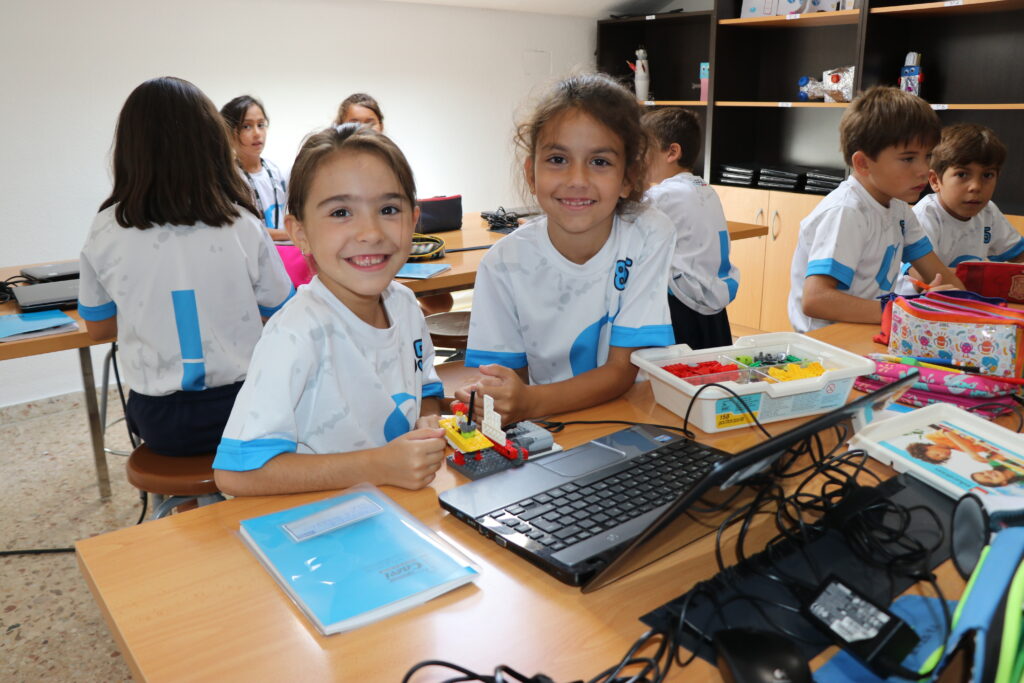
SOLUTIONS TO FOSTER DIGITAL TALENT IN CHILDREN
1. INTEGRATING TECHNOLOGY INTO THE SCHOOL CURRICULUM
To foster digital talent in children, it is essential to integrate new technologies effectively into the school curriculum. This involves designing educational programmes that incorporate innovative digital tools and active teaching methodologies that promote interactive learning and problem solving. By integrating new technologies into all areas of the curriculum, from mathematics to social sciences, children are given the opportunity to develop digital skills in an organic and contextualised way.
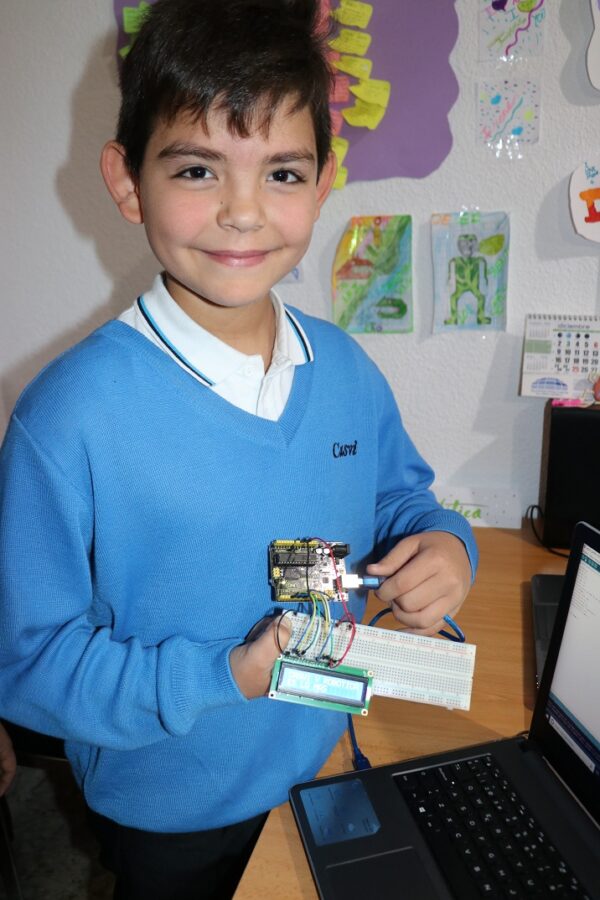
2. EXTRA-CURRICULAR PROGRAMMES FOCUSED ON DIGITAL SKILLS
In addition to formal classroom education, after-school programmes focused on digital skills are an excellent way to complement learning and foster digital talent in children. These programmes can include activities such as classes in programming, robotics, digital design and video game development, which allow children to explore their interests and develop practical skills in a collaborative and stimulating environment.
3. CONTINUING EDUCATION FOR PARENTS AND EDUCATORS
To support the development of digital talent in children, it is essential to provide continuous training for both parents and educators. This includes workshops, seminars and online resources that enable them to acquire knowledge and skills related to technology and its impact on child development. By empowering adults responsible for the education and care of children, a supportive environment is created that facilitates learning and growth in the digital environment.
4. COLLABORATION WITH TECHNOLOGY ORGANISATIONS AND COMPANIES
Another effective strategy to foster digital talent in children is to establish partnerships with technology organisations and companies. These collaborations can include mentoring programmes, company visits, internships and collaborative projects that give children the opportunity to interact with industry professionals and gain a practical understanding of real-world applications of technology in the world of work. By connecting classroom learning to the real world, children are motivated to develop relevant and transferable digital skills.
SUCCESSFUL EXPERIENCES IN DEVELOPING DIGITAL TALENT
EXAMPLES OF SUCCESSFUL INITIATIVES IN FOSTERING DIGITAL SKILLS IN CHILDREN
There are numerous initiatives around the world that have been successful in fostering digital skills in children and young people. There are numerous initiatives around the world that have been successful in fostering digital skills in children and young people.
Some schools have also implemented innovative educational models that integrate new technologies into all areas of the curriculum, providing students with opportunities to develop digital skills while learning about other subjects. These examples show how a proactive approach to developing digital talent can have a positive impact on children’s learning and development.
TESTIMONIALS FROM PARENTS, EDUCATORS AND STUDENTS ON THE BENEFITS OF A FOCUS ON DIGITAL TALENT
The testimonies of parents, educators and students are a powerful reflection of the benefits of a focus on the child. digital talent. Many parents have expressed how learning to digital skills has opened up new educational and professional opportunities for their children, preparing them for success in an increasingly digitalised world.
Educators have also shared their positive experiences of integrating new technologies in the classroom, observing how students become more motivated, engaged and creative in their learning.
In addition, the students themselves have highlighted how the development of digital skills has allowed them to explore their interests, express their creativity and acquire relevant skills for their future. These testimonials are evidence of the transformative impact that a focus on digital talent can have on the lives of children and young people.
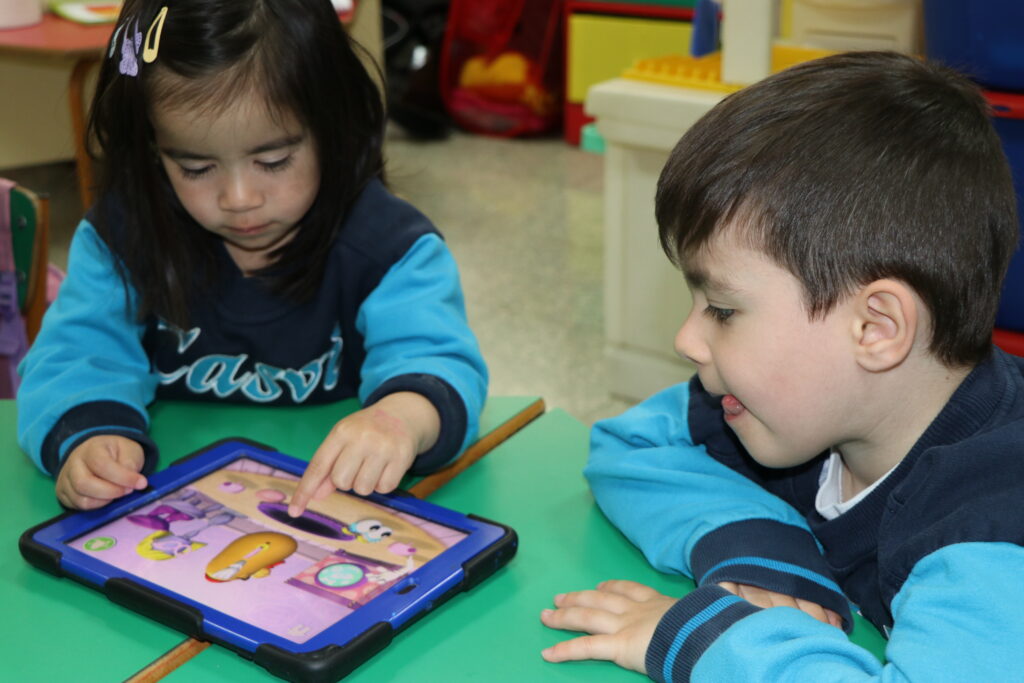
“Talent is intelligence in action, triumphant intelligence. It is revealed in the ability to choose goals well, and to mobilise the intellectual and emotional resources necessary to achieve them”.

THE IMPORTANCE OF THE INTERNATIONAL PUBLIC SCHOOL EUROCOLEGIO CASVI IN THE DEVELOPMENT OF DIGITAL TALENT
1. EDUCATIONAL PHILOSOPHY FOCUSED ON THE INTEGRATION OF TECHNOLOGY
Eurocolegio Casvi International Private School stands out for its educational philosophy focused on the integration of technology as a fundamental tool for learning. Since its inception, the school has recognised the importance of preparing students for a digitalised world and has incorporated new technologies across all areas of the curriculum.
Digital books
From 5th grade and up to 4th ESO, students at Casvi Villaviciosa work with their own iPad, thus replacing most of the conventional textbooks. These books, in digital format, have been created by the school’s teachers, and include 3D graphics and images, videos, interactive activities, etc.
Teacher - Student
The relationship between teacher and pupil benefits from new technologies. Thanks to the playback of digital content from each other’s iPads on the touchscreen TVs installed in the classrooms, the level of attention and involvement of pupils is increased.
Motivational resources
Digital books, in addition, offer motivating, clear and precise resources that favor students’ assimilation of the curricular contents and attend to diversity with an evident improvement in the results. One of the objectives of the International Baccalaureate (IB) methodology implemented in Casvi Villaviciosa.
2. SPECIFIC RESOURCES FOR THE DEVELOPMENT OF DIGITAL TALENT AT EUROCOLEGIO CASVI
Thanks to the new technologies implemented in the Casvi Villaviciosa school, they are able to achieve their main objective. This is to increase STEAM (Science, Technology, Engineering and Mathematics) vocations and to achieve the professional development of its students. It also boosts their technological competence from the early years to their prior incorporation into the world of work. And they do so on the basis of robotics and the most cutting-edge programming languages used in the real world of work, which they have introduced in a pioneering way in their educational curriculum from an early age.
3. HOW TO DEVELOP DIGITAL TALENT FROM AN EARLY AGE
Because of the need to sustain a solid project of technology at the school at all stages, the technological career of its pupils begins in 1st Infant Schoolwhere they are introduced to the use of tablets, and learn how to navigate the operating system and tools such as YouTube through the use of educational apps.
For ages 4 and up, the focus for the TPR (Technology Programming and Robotics) area is on developing cooperative play, creative thinking, attention span and concentration, curiosity, confidence, spatial and temporal orientation, and language and communication skills. All this in a transdisciplinary way using tools such as Jack “The Robot”, constructions with Lego Duplo, Cubetto and the use of our iPad to program with Scratch Junior.
The ultimate consequence of this is that in the baccalaureate, ICTs turn students into expert web application developers. Thus, they are able to configure, for example, their own needs such as Apache servers, PHP, FTP clients and web language editors, or to build Ethernet cables and configure routers and access points for the establishment of trunked communications.
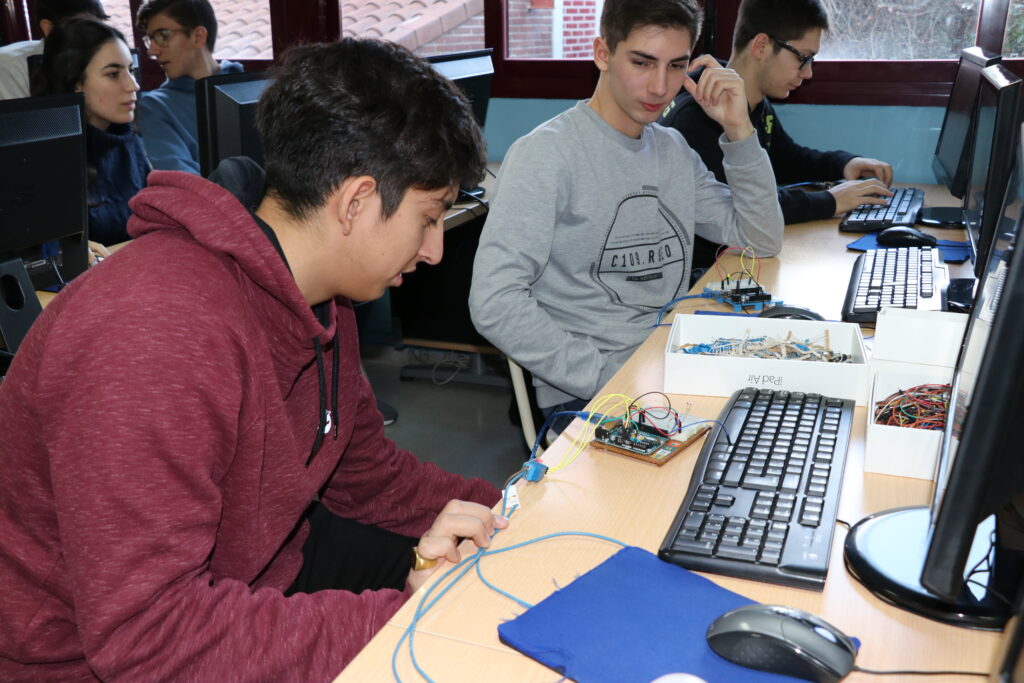
4. FOCUS ON TECHNOLOGICAL LEARNING-BY-DOING AND INNOVATION
Eurocolegio Casvi is distinguished by its focus on practical learning and technological innovation. The school actively encourages students to participate in practical projects that allow them to apply their knowledge in real situations and develop practical skills relevant to the world of work.
CONCLUSIONS ON THE IMPORTANCE OF DEVELOPING CHILDREN'S DIGITAL TALENTS
In short, the development of digital talent in children is a fundamental aspect of preparing them for an increasingly digitised future. Digital skills not only allow them to adapt and thrive in an ever-changing technological world, but also enhance their creativity, critical thinking and problem-solving skills. It is crucial to recognise the importance of nurturing digital talent from an early age and providing children with the necessary tools and opportunities to develop their full potential in this area.
It is therefore essential that educators and society in general join forces in a joint effort to promote the development of digital talent in children and young people.
This is a challenge that requires the commitment and collaboration of all sectors of society. We urge parents to become actively involved in their children’s digital education, educators to continue to explore new ways of integrating technology in the classroom, and society at large to support initiatives that promote digital literacy and the development of digital skills. digital skills in youth. Together, we can work to cultivate a future in which all children can develop their human and talented talents across all types of talent, including digital talent.
We invite you to visit Casvi Villaviciosa and discover how we encourage the development of digital talent in our students!
Come and see first-hand our innovative educational programmes, our state-of-the-art technological facilities and our focus on hands-on learning and technological innovation. Find out how we are preparing our students to succeed in an ever-changing, digitised world. We hope to see you soon in Casvi Villaviciosa!

